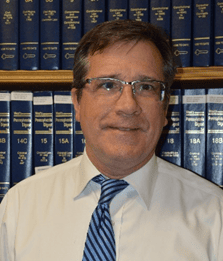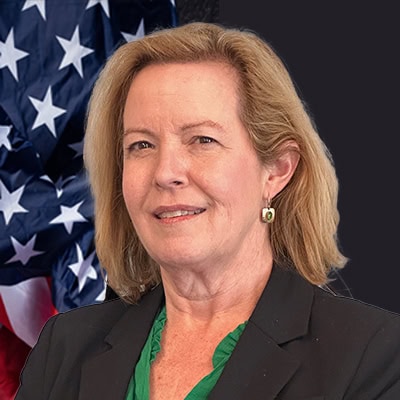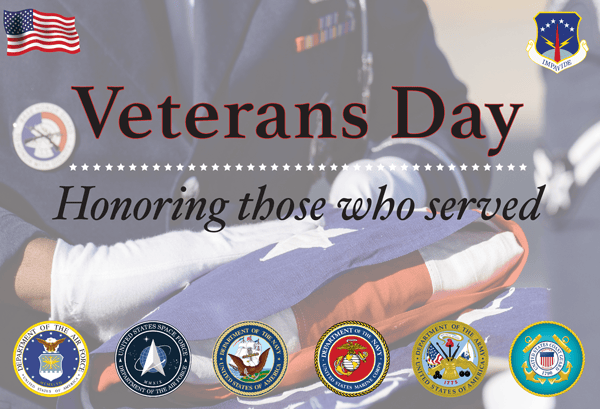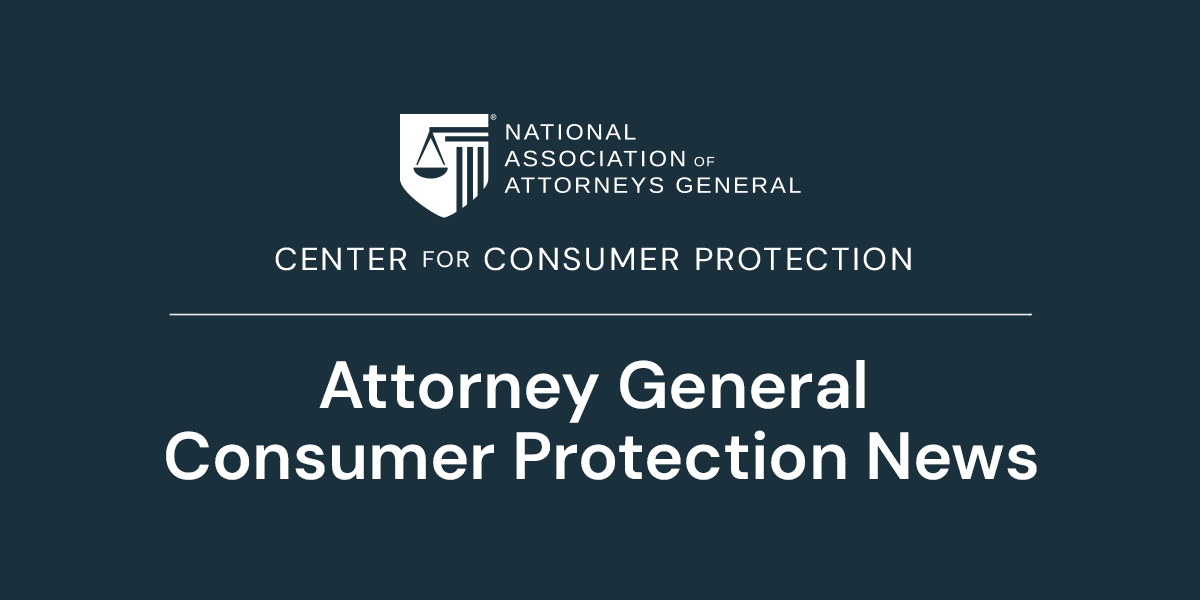Consumer Chief of the Month
 John Abel, Chief Deputy Attorney General of the Bureau of Consumer Protection, Pennsylvania Attorney General’s Office
John Abel, Chief Deputy Attorney General of the Bureau of Consumer Protection, Pennsylvania Attorney General’s Office
I started with the Bureau of Consumer Protection in 1998 and have served in a number of different roles including Attorney-in-Charge of regional offices and Assistant Director for Multistate and Special Litigation. I was promoted to Chief Deputy Attorney General of the Bureau of Consumer Protection in the spring of 2024.
The Bureau is composed of approximately 90 people, including 25 attorneys as well as 40 agents/investigators. As with many other consumer protection offices, ours mediates consumer complaints, conducts investigations, undertakes legal actions, and other enforcement proceedings, as necessary. As well, we engage in public education and outreach.
I have found this new position to be quite challenging but at the same time, a lot of fun. I have had the opportunity to collaborate in new ways with a number of colleagues that I have been working with for many years. Not only do I have the opportunity to work with colleagues within Pennsylvania, but I also get to develop relationships with consumer protection agencies in other states and those relationships have been helpful over the years. I am extremely proud of everyone that I work with in the Bureau and have long tried to foster a team-focused work environment. I truly believe that we hold a sacred trust to see that our actions are carried out in the public interest for the betterment of Pennsylvania consumers. This job has been extremely rewarding because it provides intellectual challenges almost every day, while at the same time I get to stand up for consumers who often have nowhere else to turn.
My time in the Bureau of Consumer Protection has allowed me to work with good people who are doing good work. In particular, I appreciate the opportunity to foster professional development by working with the new attorneys and everyone within the Bureau to encourage them to reach their full potential in achieving the mission of the Bureau.
National Veterans and Military Families Month
By: Kate Donoven, NAAG Consumer Counsel
November was National Veterans and Military Families Month. The National Association of Attorneys General, in recognition of their service, highlighted topics important to active-duty service members, veterans, and their families.[1] As the surviving spouse of Chief Master Sergeant Michael Donoven, honoring our nation’s military, veterans, and their families is something I continue to care about deeply. Featuring National Veterans and Military Families Month in NAAG’s November press releases, LinkedIn posts, and this month’s newsletter is a very personal way I can commemorate his twenty-five years of service in the Air Force.
The month recognized the sacrifices and contributions of service members, veterans, and their families and highlighted the resources available to them. In light of the election, active-duty service members and veterans voting was in the spotlight. The Uniformed and Overseas Citizen Absentee Voting Act (UOCAVA) allows service members and their families to register and vote absentee from overseas. Once separated from active duty, veterans transitioning back to civilian life in the United States register to vote in their state of residence. These laws ensure their participation in the democracy they are serving.
All their years of service and training does not insulate service members and their families from being targeted by scammers. In fact, military service members, veterans, and family members are often targeted by scammers due to their high mobility and guaranteed paychecks. In 2023, scammers stole $477 million from veterans, active-duty military personnel, and their families according to data collected by the Federal Trade Commission and released in the Consumer Sentinel Network’s 2023 Data Book. That staggering figure represents only reported losses. Financial scams can negatively affect a service member’s career. Fraudulent and predatory for-profit colleges can drain a member’s valuable higher education benefits, identity theft and phishing scams persist, and the CFPB’s Data Book reported military consumers losing $26.4 million in business-opportunity and job-opportunity-related fraud. Military service members, veterans, and family members can find great resources to combat and avoid fraud at the Vsafe.gov website and their attorney general’s consumer protection website.
Unfortunately, there have also been instances of fraudulent military and veteran charities in recent years. From 2019 to 2023, nearly 300,000 fraud cases involving veterans and military retirees were reported, with significant financial losses. The Federal Trade Commission, the National Association of State Charity Officials (NASCO), attorneys general, and other state charity regulators have launched initiatives to combat veteran charity fraud, resulting in numerous legal actions against fraudulent organizations.
Fortunately, there are numerous legitimate charities dedicated to supporting active-duty military service members and their families. Donors can take several steps to ensure their contributions are effectively supporting service members. Researching charities through platforms like Charity Navigator, Charity Watch, and GuideStar can provide insights into how funds are allocated. Through these sites, donors can find organizations that support service members in general or service-specific organizations.
The NAAG Veterans Affairs Committee is dedicated to protecting and assisting our nation’s veterans by actively pursuing those who exploit veterans, service members, and their families, providing vital assistance on legal issues related to deployments and general military service, and ensuring that veteran health benefits are protected and accessible. The Center for Consumer Protection works to protect military consumers by providing training, support, and resources to attorney general offices across the country.
[This could be your article next month]
The Center for Consumer Protection invites the submission of articles for publication in the monthly newsletter. Articles should be about consumer issues, summaries of federal or state attorney general enforcement actions, court decisions, or other items involving consumer issues that may be of interest to the consumer protection, charities, and military and veterans attorney general community. Please send proposed articles or topics to National Association of Attorneys General Consumer Counsel Kate Donoven at Kdonoven@naag.org.
Attorney General Consumer Protection News
Multistate Actions
A bipartisan coalition of 47 attorneys general called on the Federal Communications Commission (FCC) to improve their robocall mitigation database. The National Association of Attorneys General sent a policy letter on their behalf urging the FCC to close what effectively has been an unmonitored loophole that bad actors exploit to access the U.S. telephone network. The letter points out that, while voice service providers are required to register with the FCC, too often the information submitted by providers is clearly false, inaccurate, or misleading. Closing the loophole would make it harder for non-complaint voice service providers to access the entire network and reduce more illegal robocalls.
A bipartisan group of 30 attorneys general finalized the Kroger Co. opioid settlement. The settlement agreement, which totals $1.37 billion overall, resolves allegations that the company contributed to the opioid crisis. Kroger has also agreed to injunctive relief that requires its pharmacies to monitor, report, and share data about suspicious activity related to opioid prescriptions. The funds will be distributed over 11 years.
Thirty-eight state attorneys general and the U.S. Department of Justice submitted a package of remedies to end Google’s unlawful monopoly over internet search engines. The bipartisan proposal for relief follows a D.C. federal court judge’s decision that Google violated federal antitrust laws by illegally maintaining a monopoly in online search and search text ads. If adopted, the judgment would, among other relief, end Google’s search distribution contracts and revenue sharing agreements by prohibiting Google from paying to be the initial default search engine on any phone, device, or browser and require divestiture of Google’s browser, Chrome.
Tennessee Attorney General Jonathan Skrmetti led a bipartisan coalition of 32 attorneys general urging Congress to pass the bipartisan Kids Oline Safety Act (KOSA) before the end of the session. The letter emphasizes that KOSA would require mandatory default safety protections for children, empower parents to disable manipulative design features, and improve dangerous content reporting capabilities.
Indiana Attorney General Todd Rokita and Ohio Attorney General Dave Yost led the filing of an amicus brief in the U.S. Supreme Court defending the constitutionality of Texas’s age-verification law requiring commercial pornography websites to obtain proof of age before site access is granted. The 24-state coalition’s brief argued that age verification for access to pornographic materials online does not violate the First Amendment’s free speech protection.
The attorneys general of Connecticut, Florida, New Jersey, New York, and Vermont announced a 6.5-million-dollar settlement with Morgan Stanley Smith Barney LLC related to millions of consumers’ data security. The bipartisan settlement resolves allegations that Morgan Stanley failed to securely decommission its computers and erase unencrypted data in certain computer devices that were later auctioned while still containing consumers’ personal information. The investigation revealed that Morgan Stanley hired a moving company with no experience in data security services to decommission the thousands of hard drives and that the devices possibly contained unencrypted data due to a manufacturer’s flaw in the encryption software.
National Association of Attorneys General
Attorneys General and the National Association of Attorneys General proudly celebrated their support for National Veterans and Military Families Month in a series of articles honoring their service, The stories highlighted active-duty service members’ voting rights, military-targeted scams, and charitable giving by service members. South Carolina Attorney General Alan Wilson and Washington Attorney General Bob Fergson chair the National Association of Attorneys General Veteran Affairs Committee. This month recognizes the sacrifices and contributions of service members, veterans, and their families and highlights the resources available to them. The Co-Chairs’ statement encouraged everyone to join “in supporting military families by exploring available resources and finding ways to contribute to their well-being.”
Individual Attorney General Actions
Colorado Attorney General Phil Weiser will provide restitution checks to thousands of eligible consumers as part of a settlement with Wyatts Towing. The settlement resolves allegations that Wyatts collected illegal fees, conducted unlicensed towing services, and other deceptive business practices.
District of Columbia Attorney General Brian Schwalb filed a lawsuit against paycheck advance company ActiveHours, Inc., d/b/a EarnIn, an app-based lender, for deceptively marketing and providing illegal high-interest loans to more than 20,000 District consumers. Schwab also acted against Curbio, Inc., a pre-sale home renovation company that allows consumers to defer payment until after the homes are sold, alleging a scheme of deception, intimidation, and fraud that traps elderly District residents. The complaint alleges Curbio tricked consumers into unconscionable contracts, while performing overpriced, substandard work that often takes months—or years—longer than promised.
Minnesota Attorney General Keith Ellison announced a federal lawsuit against individuals that control online lenders Bright Lending, Green Trust Cash, and Target Cash Now for usurious lending and consumer fraud. The lawsuit alleges that the jointly operating lenders charged usurious interest rates of 400 to 800 percent on thousands of loans to Minnesota consumers.
Nebraska Attorney General Mike Hilgers filed a lawsuit against social media influencers and a slew of Florida companies doing business as WiFi Money among other names, claiming the company’s practices lead Nebraskans to lose millions of dollars. Defendants allegedly enticed Nebraskans to purchase “automated” e-commerce stores that would be run by “dropshipping gurus” on Amazon and Walmart.com. Nebraskans were allegedly deceived with empty promises of getting “paid to live” and “money-back guarantees,” as well as misleading statements regarding the scheme’s history of success. Nebraska’s complaint describes the deceptive tactics allegedly used by Defendants to recruit consumers into paying thousands of dollars for services they did not receive.
North Carolina Attorney General Josh Stein sued Oquirrh Mountain Phlebotomy School in Wilmington for allegedly falsely advertising their phlebotomy certification program without telling students the program is not licensed by the state.
Ohio Attorney General Dave Yost sued Cincinnati-area used car dealer Superior Auto Mart and its owner who allegedly failed to provide consumers with titles in violation of the state’s consumer protection laws.
Pennsylvania Attorney General Michelle Henry announced a settlement with GPGL Holdings, a Florida-based lead generator d/b/a Fast Money Car Title Loans. The settlement resolves allegations that the defendant used fake physical addresses and false customer reviews to push Pennsylvania borrows into high-interest loans with auto title lender Community Loans of America.
Utah Attorney General Sean Reyes defeated TikTok defendants’ motion to dismiss the state’s complaint alleging the platform harms children. The state court judge’s order rejected TikTok’s arguments that the complaint failed to state sufficient facts to establish jurisdiction, that section 230 of the Communications Decency Act shielded it from liability, and that Utah failed to state certain claims.
Federal Consumer Protection News
Consumer Financial Protection Bureau
The Consumer Financial Protection Bureau (CFPB) finalized a rule on oversight of popular digital payment apps to protect consumer data, reduce fraud, and stop illegal debanking. The final rule allows the CFPB to conduct proactive examinations to ensure that companies handling more than 50 million transactions per year follow federal law that applies to large banks, credit unions, and other financial institutions supervised by the CFPB. The CFPB estimates that the most widely used apps covered by the rule collectively process over 13 billion consumer payment transactions annually.
The CFPB released its annual report of the Student Loan Ombudsman, highlighting “severe difficulties” reported by student borrowers from servicing failures. The report outlines servicing breakdowns, inaccurate information, improperly processed payments, and delayed income driven payment applications that it states delayed borrowers’ return to repayment status.
The CFPB reached a settlement with Navy Federal Credit Union for more than $95 million for allegedly illegal surprise overdraft fees from 2017 to 2022. Navy Federal allegedly charged customers surprise overdraft fees on certain ATM withdrawals and debit card purchases, even when their accounts showed sufficient funds at the time of the transactions. The Consent Order requires Navy Federal to refund more than $80 million to consumers, stop charging illegal overdraft fees, and pay a $15 million civil penalty to the victims relief fund.
Federal Trade Commission
In a lawsuit brought by the Federal Trade Commission (FTC) and a bipartisan group of 18 attorneys general, the U.S. Court for the Eastern District of New York ordered Harris Jewelers to reopen its refund claims process and reach back out to thousands of service members who were duped by misleading marketing and sales practices. The court found Harris Jewelry violated its prior settlement with the FTC and the multistate group led by the New York Attorney General’s Office by prematurely shutting down the claims portal. Claims must be filed by December 21 on the Harris Jeweler’s claim website. Over $8 million in the settlement fund is available to 32,000 consumers nationwide eligible for relief.
The FTC approved final amendments to the Telemarketing Sales Rule (TSR). The amendments expand TSR’s coverage to inbound calls made by consumers to companies pitching technical support services through advertisements or direct mail solicitations which allegedly led to more than $175 million in losses among consumers 60 and older last year. The TSR normally does not apply to calls initiated by consumers, however exemptions such as the one approved have been created in the past for consumer-initiated calls prompted by common deceptive business schemes including debt relief services, investment opportunities and prize promotions schemes including debt relief services, investment opportunities and prize promotions.
The FTC issued a report on its undercover funeral rule phone sweep, finding that several funeral service businesses failed to provide pricing information about their offerings over the phone when asked, as required by the FTC’s Funeral Rule.
The FTC took action against online cash advance app Dave for allegedly deceiving consumers about the amount of its paycheck cash advances, charging so called “tips” to consumers without their consent, and charging undisclosed fees.
The FTC returned more than $17 million to consumers allegedly harmed by online cash advance provider Brigit based on its allegedly deceptive claims, junk fees, and confusing cancellation process.
In Other Federal and International News
The Federal Communications Commission received 2,734 applications for $3.7 billion in funding from schools, libraries, and the like to participate in its Schools and Libraries Cybersecurity Pilot Program, far exceeding the $200 million available in its three-year pilot program to evaluate the effectiveness of using Universal Service funding to support cybersecurity services and equipment to broadband networks and data.
The U.S. Consumer Product Safety Commission (CPSC) announced that Bestar Inc., of Canada, has agreed to a $16.025 million civil penalty. The settlement resolves CPSC’s charges that Bestar knowingly failed to immediately report to CPSC, as required by law, that its wall beds contained a defect that could create a substantial product hazard or created an unreasonable risk of serious injury to consumers. Over an eight-year period, Bestar allegedly failed to report 35 incidents, one fatality and 15 injuries.
The Department of Justice announced that an extradited Nigerian national was sentenced to 7 years and ordered to pay $2.8 million in restitution for cyberfraud conspiracy that targeted numerous businesses across the United States. The schemer impersonated actual officials at large companies, placing large technology orders, and then redirecting the shipments to South Africa where the goods would be sold.
The Food and Drug Administration announced its proposal to remove oral phenylephrine as an active ingredient that can be used in over-the-counter (OTC) monograph drug products for the temporary relief of nasal congestion after an agency review of the available data determined that oral phenylephrine is not effective for this use. Oral phenylephrine has been marketed for 30 years as an effective decongestant and widely used by consumers with few reported side effects but current scientific data does not support that the recommended dosage of orally administered phenylephrine is effective as a decongestant.
INTERPOL’s five-month Operation HAECHI V, targeting seven types of cyber-enabled frauds, ended with the arrest of over 5,500 financial crime suspects and the seizure of more than USD 400 million in virtual assets and government-backed currencies. The global operation involved law enforcement from 40 member organizations, including the U.S. In parallel with the operation, financial crime specialists from INTERPOL collaborated with police investigators and financial institutions in over 80 countries to strengthen use of INTERPOL’s Global Rapid Intervention of Payments (I-GRIP), successfully intercepting millions of dollars in stolen funds.
Charities News
District of Columbia Attorney General Brian Schwalb sued Raheem Al d/b/a Community Response Works and its founder and Executive Director Brandon Anderson for violating the District’s nonprofit laws alleging that Anderson misused $75,000 in charitable funds to support his luxurious lifestyle while the organization lacked basic responsible nonprofit governance nonprofit governance.
Washington Attorney General Bob Ferguson won a $1.4 million judgment against The Noble Foundation alleging that it misused charitable funds to fund the founder’s extravagant lifestyle. Founder Ophelia Noble failed to account for over $1 million of the foundation’s charitable funds according to the order.
Military & Veterans News
The U.S. Department of Veterans Affairs and Department of Defense announced an improved installations access process for Veterans and eligible caregivers for medical appointments, shopping, and certain morale, welfare, and recreation (MWR) services. Starting Nov. 1, 2024, Veterans without a VA-issued Veteran Health Identification Card (VHIC), as well as eligible caregivers, no longer need to present a VA-issued caregiver patronage letter, VA-issued service-connected disability letter, or VA Health Eligibility Center Form H623A to enroll for installation access. Veteran and caregiver eligibility will now be electronically verified during the installation access process.
In support of November’s National Veteran and Military Family Month, several attorneys general offered resources to military service members and their families. Florida Attorney General Ashley Moody offered tips to avoid military-target scams. https://www.atg.wa.gov/veteran-and-military-resources. Illinois Attorney General Kwame Raoul hosted a free webinar for service members and their families to learn how to avoid scams directed at veterans.
[1] The appearance of U.S. Department of Defense (DoD) visual information does not imply or constitute DoD endorsement.







